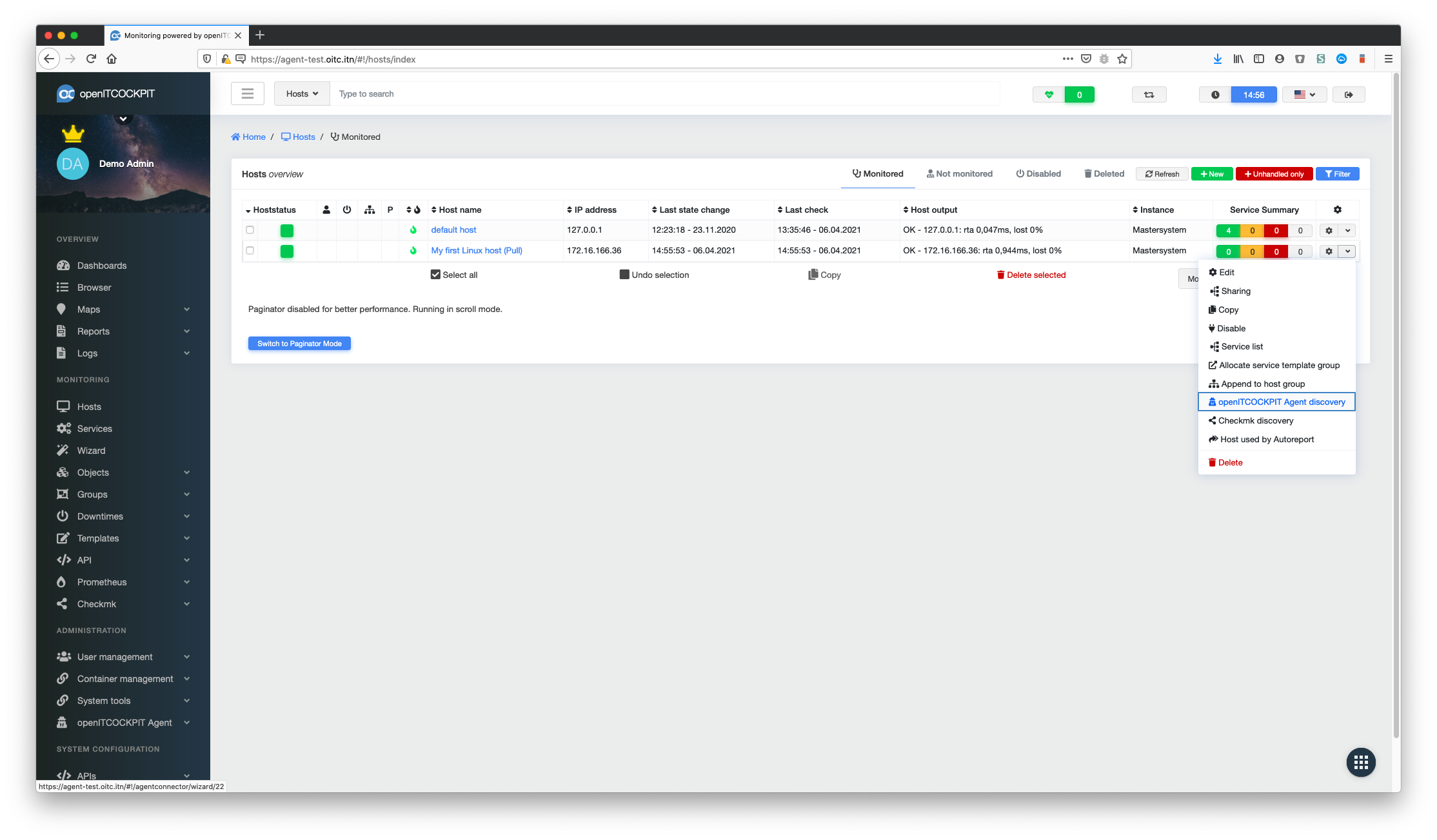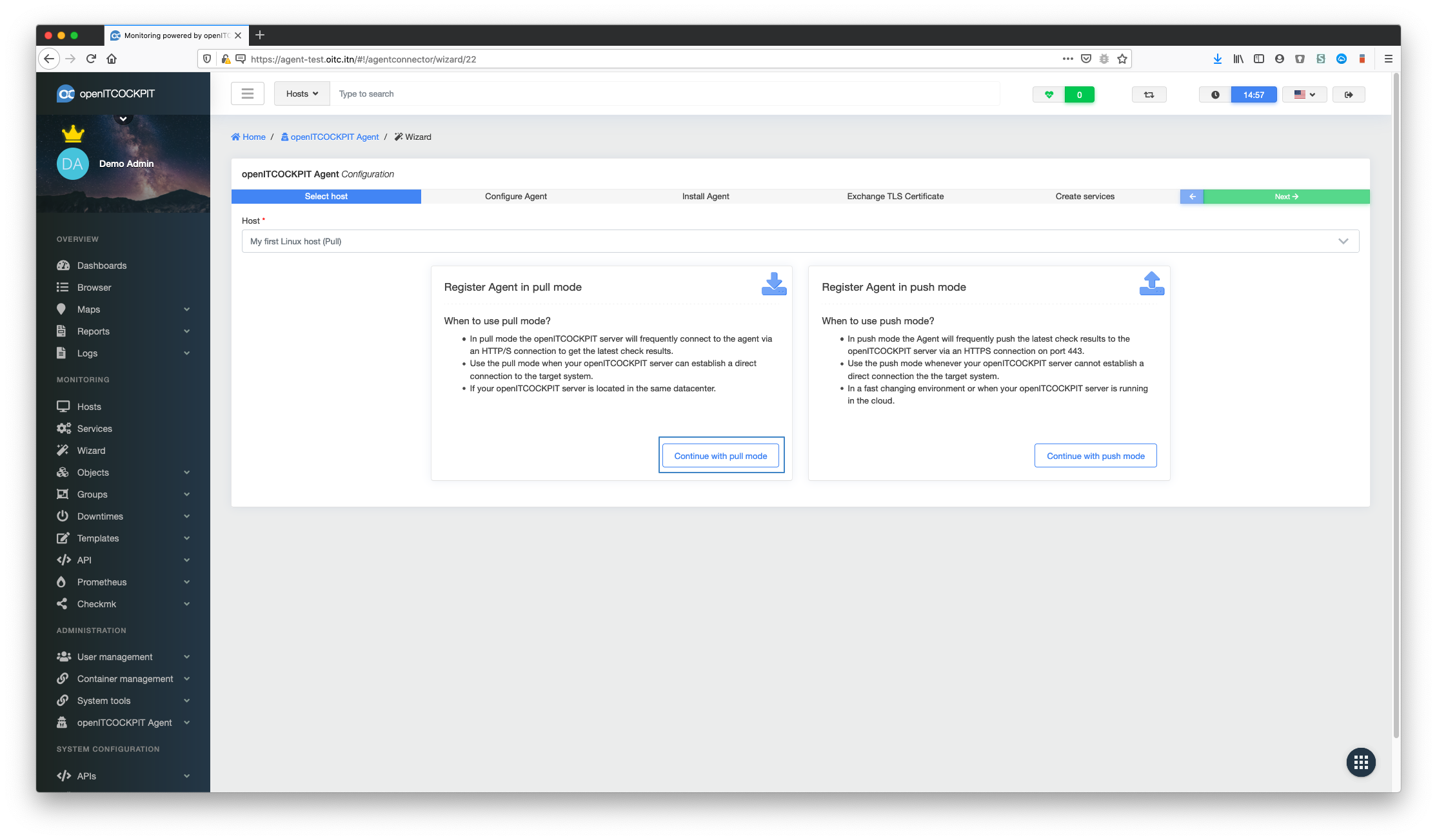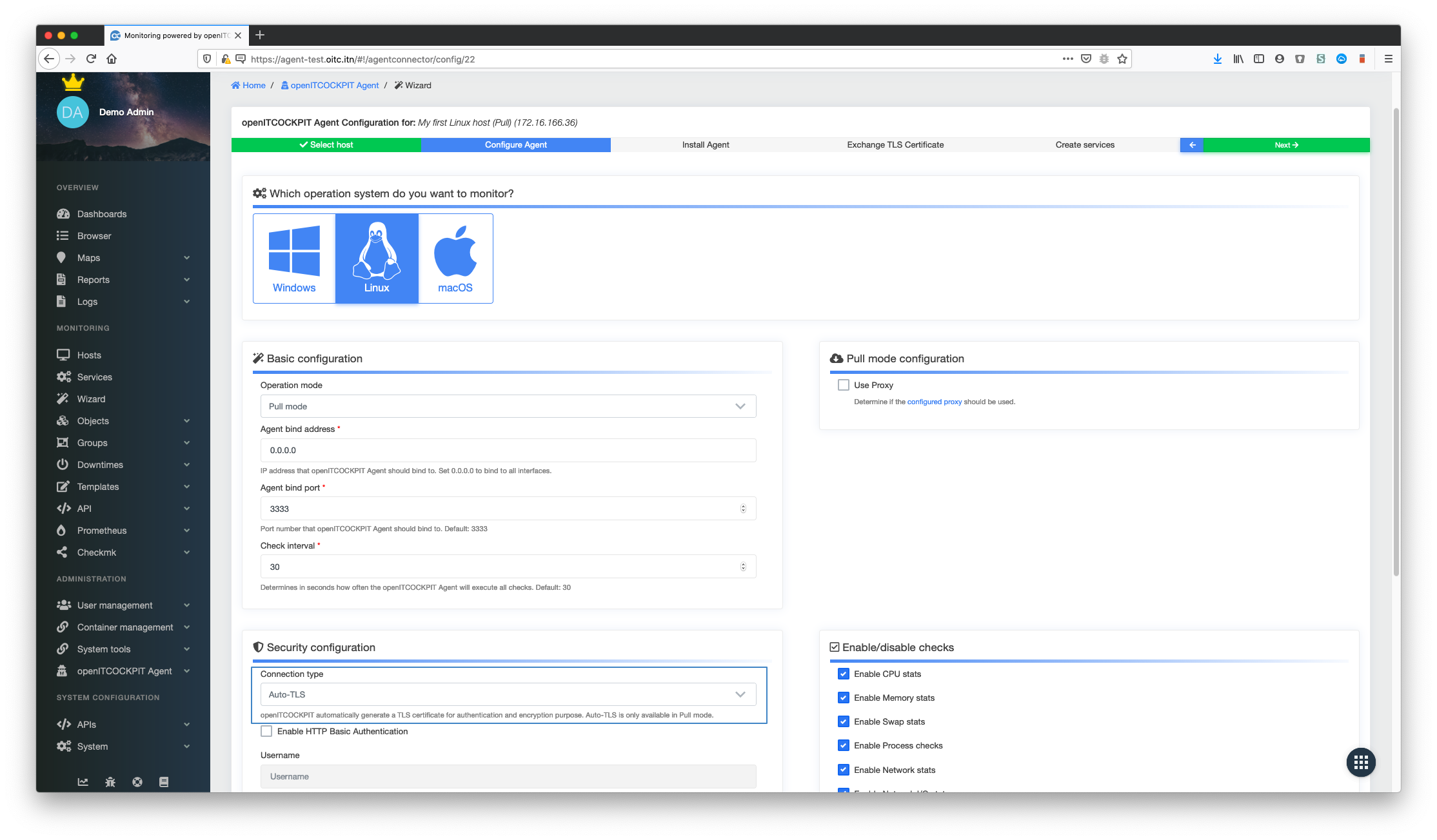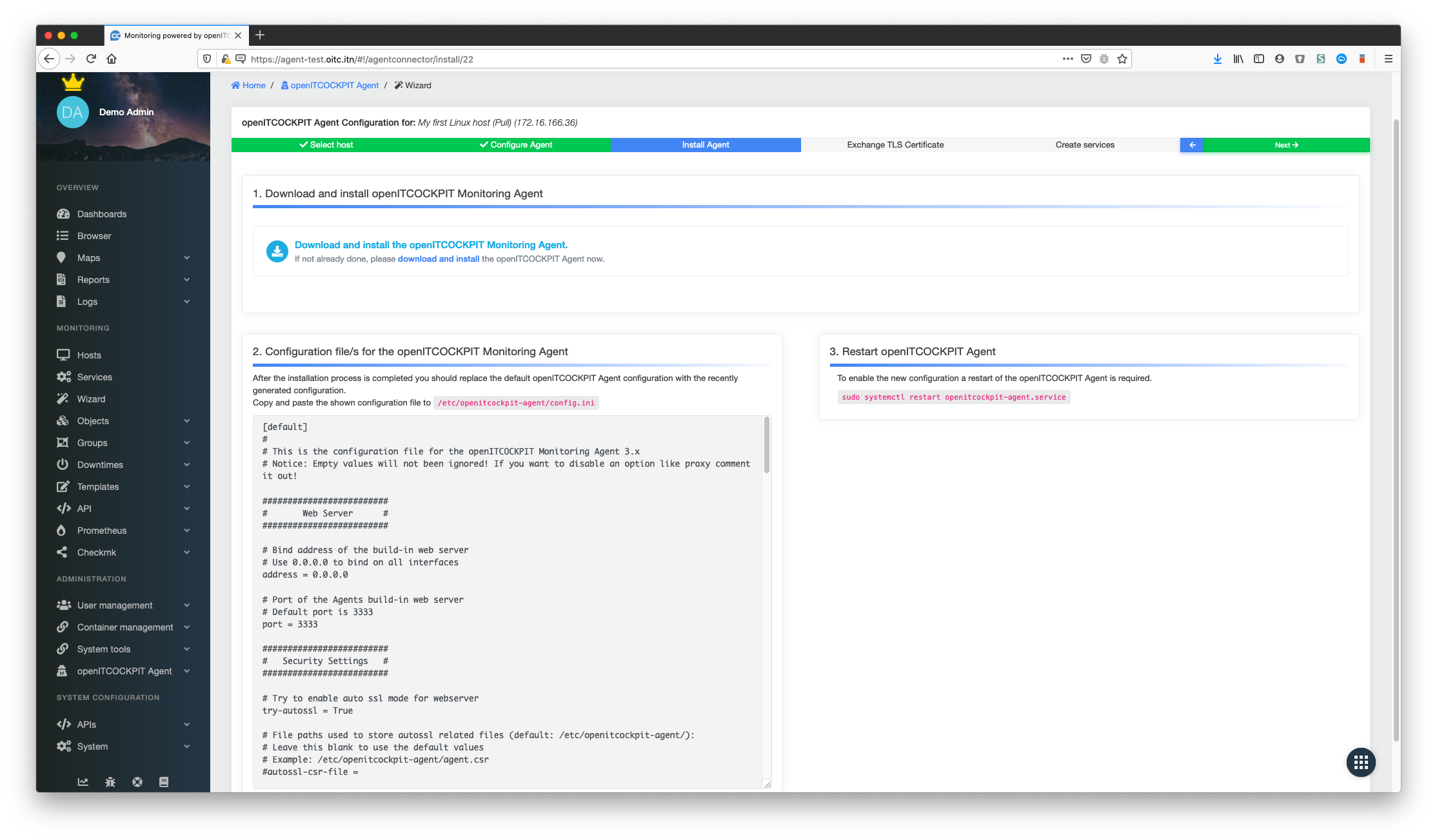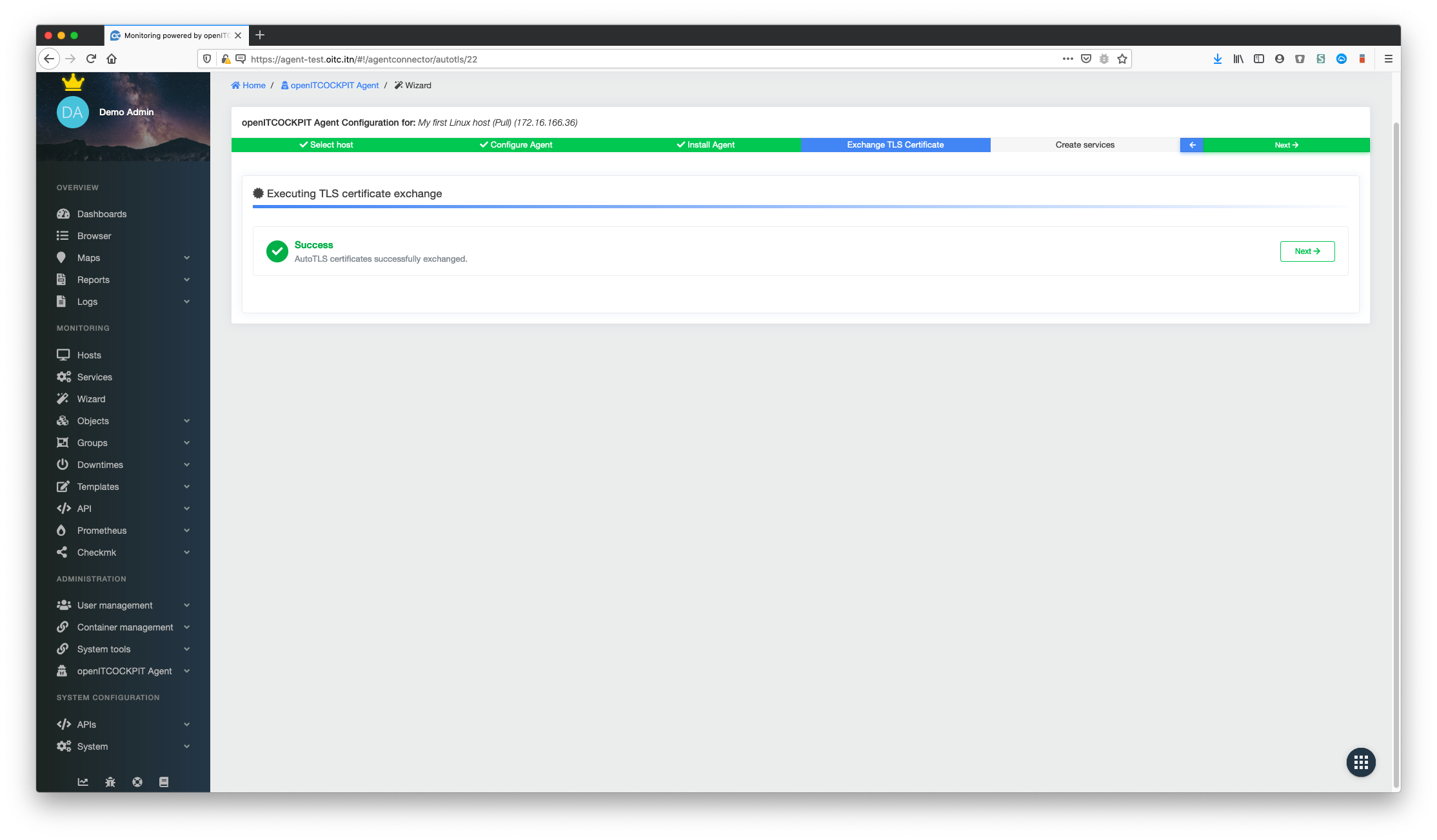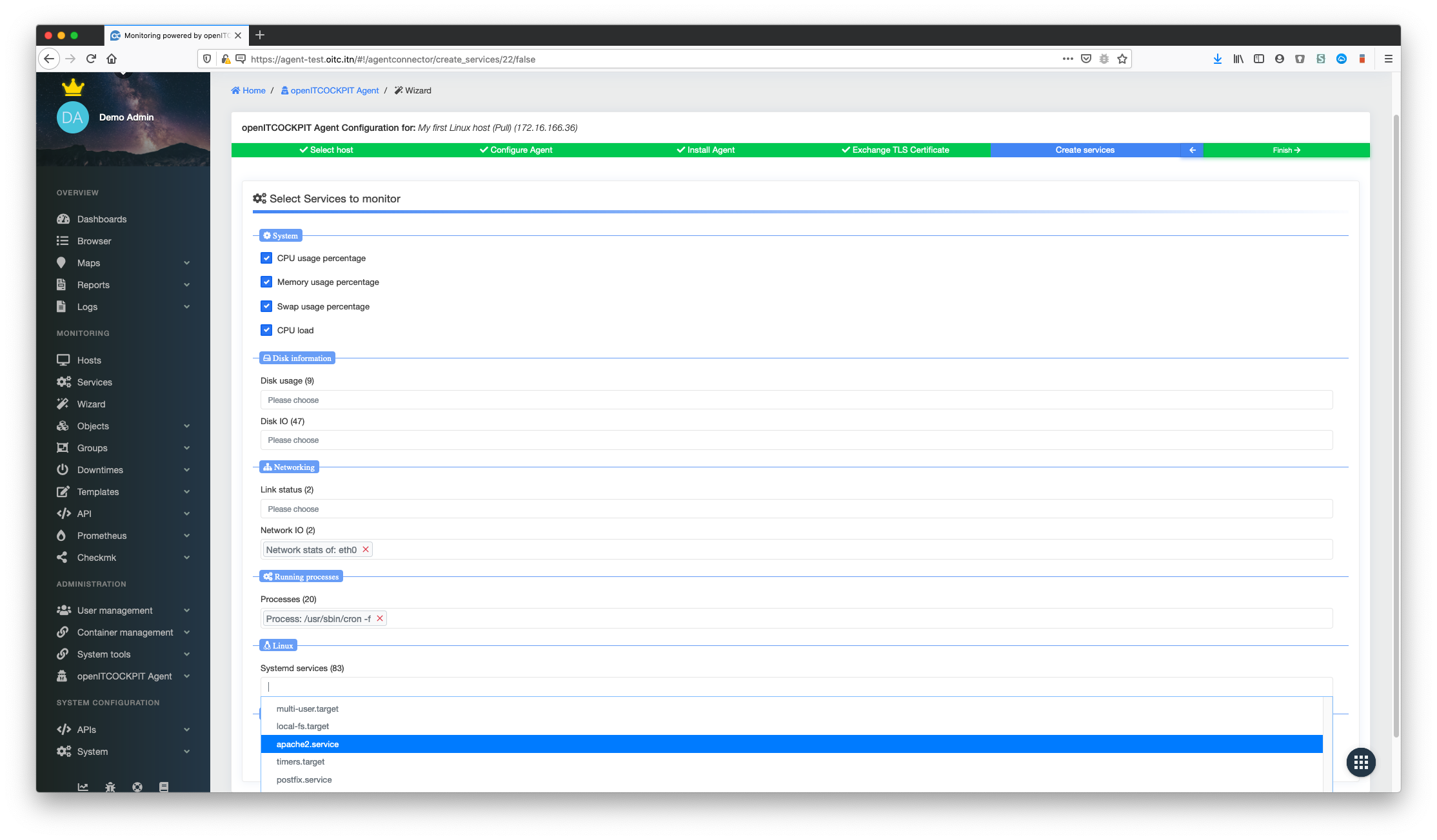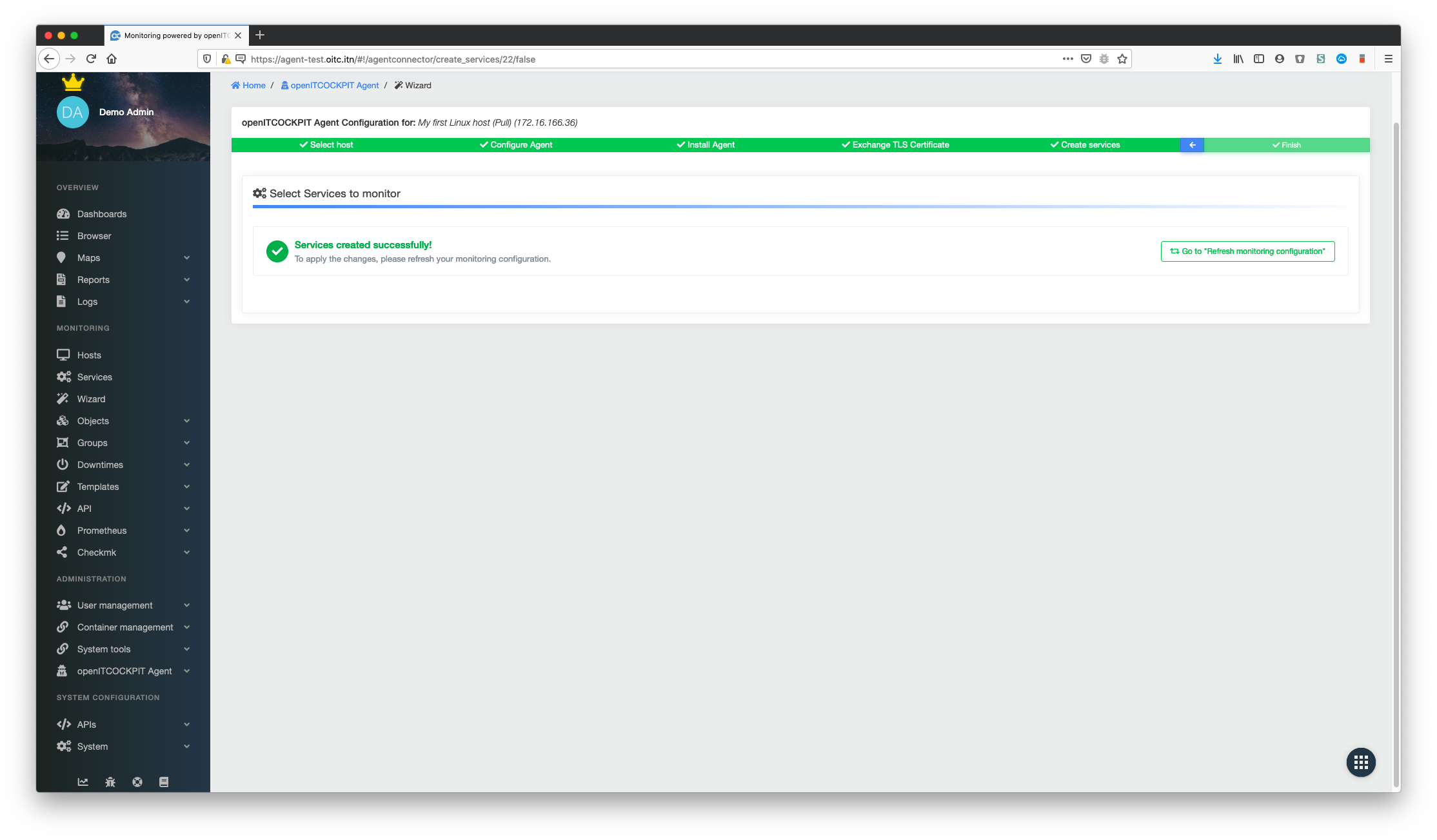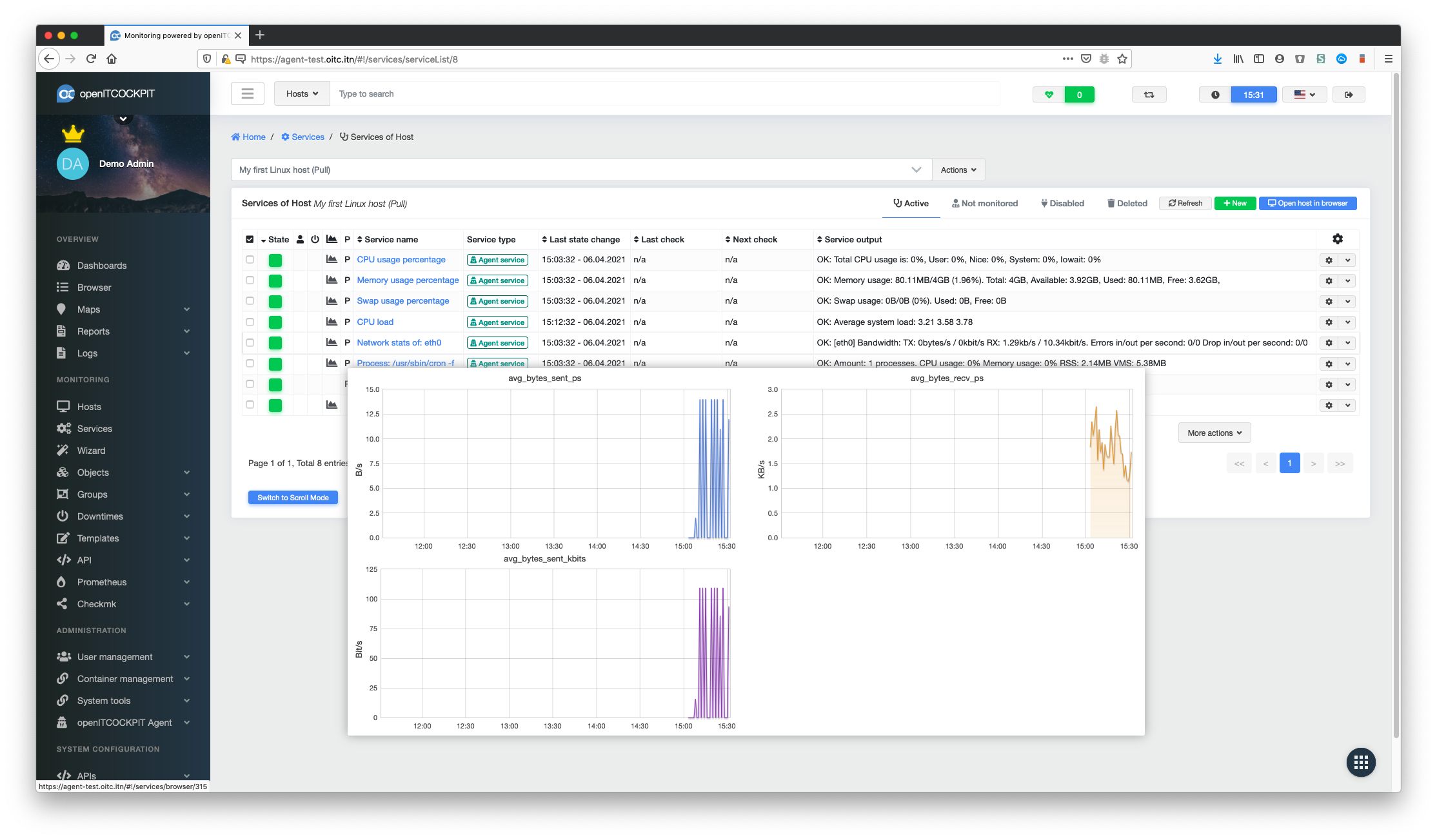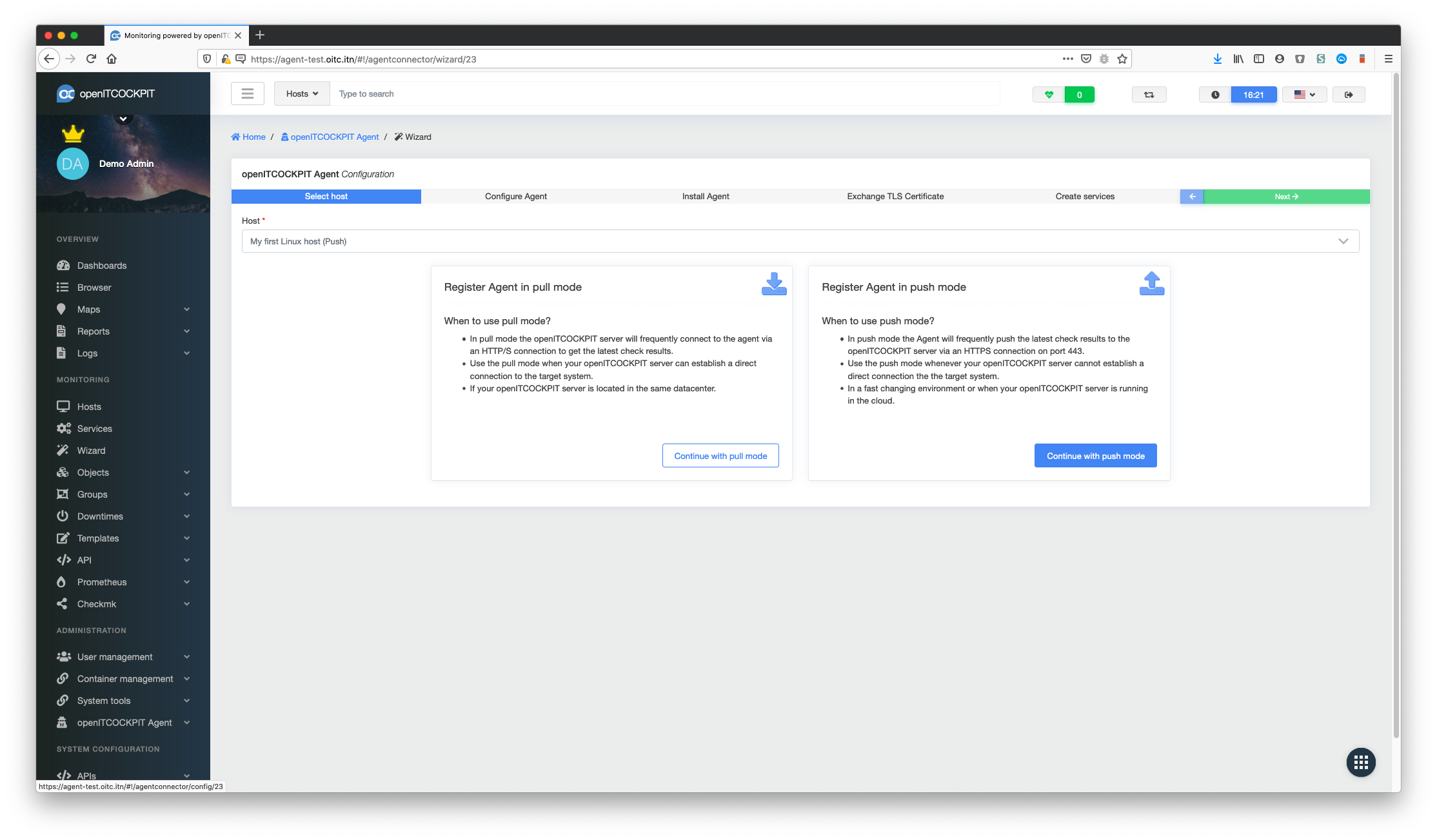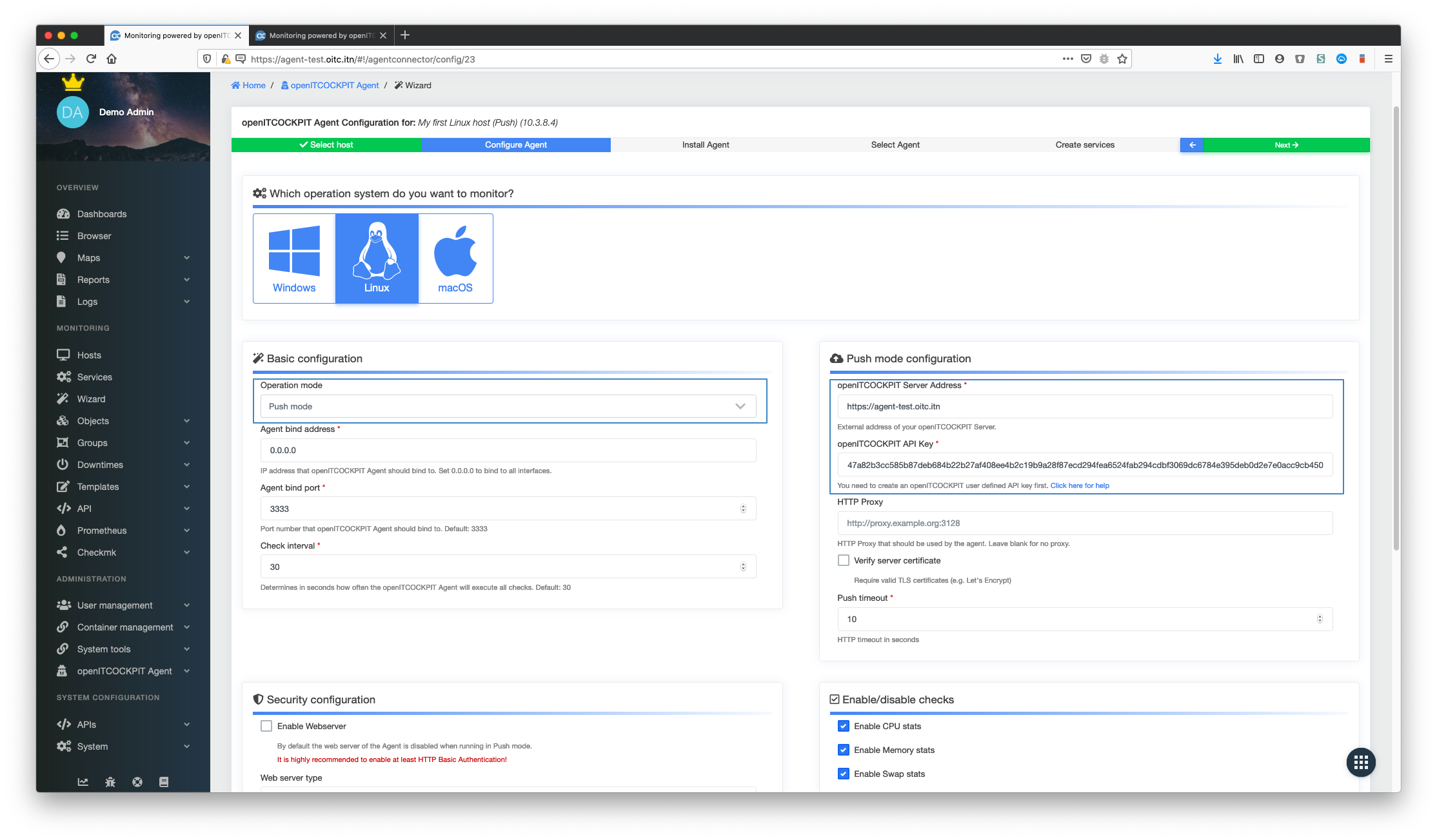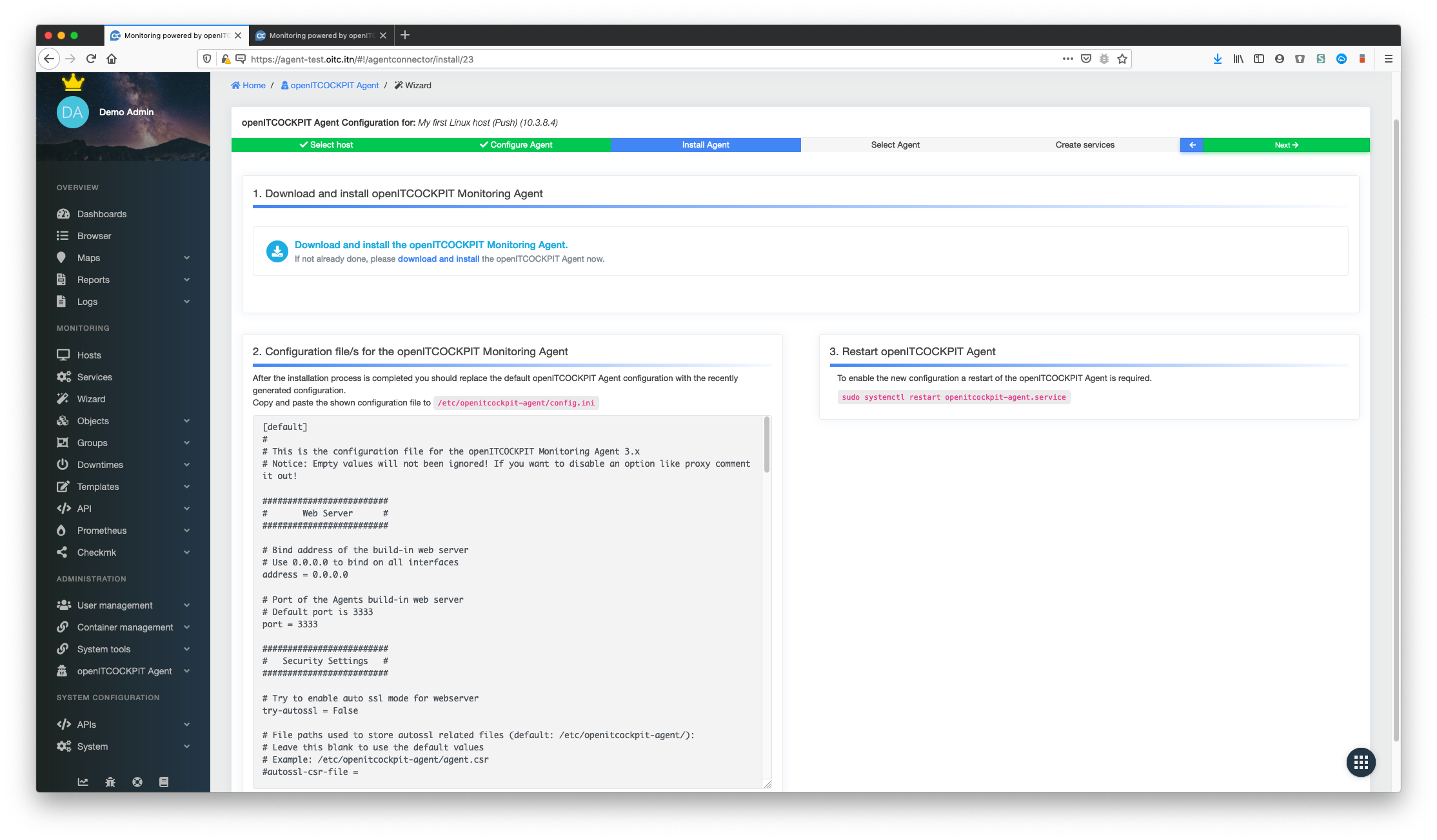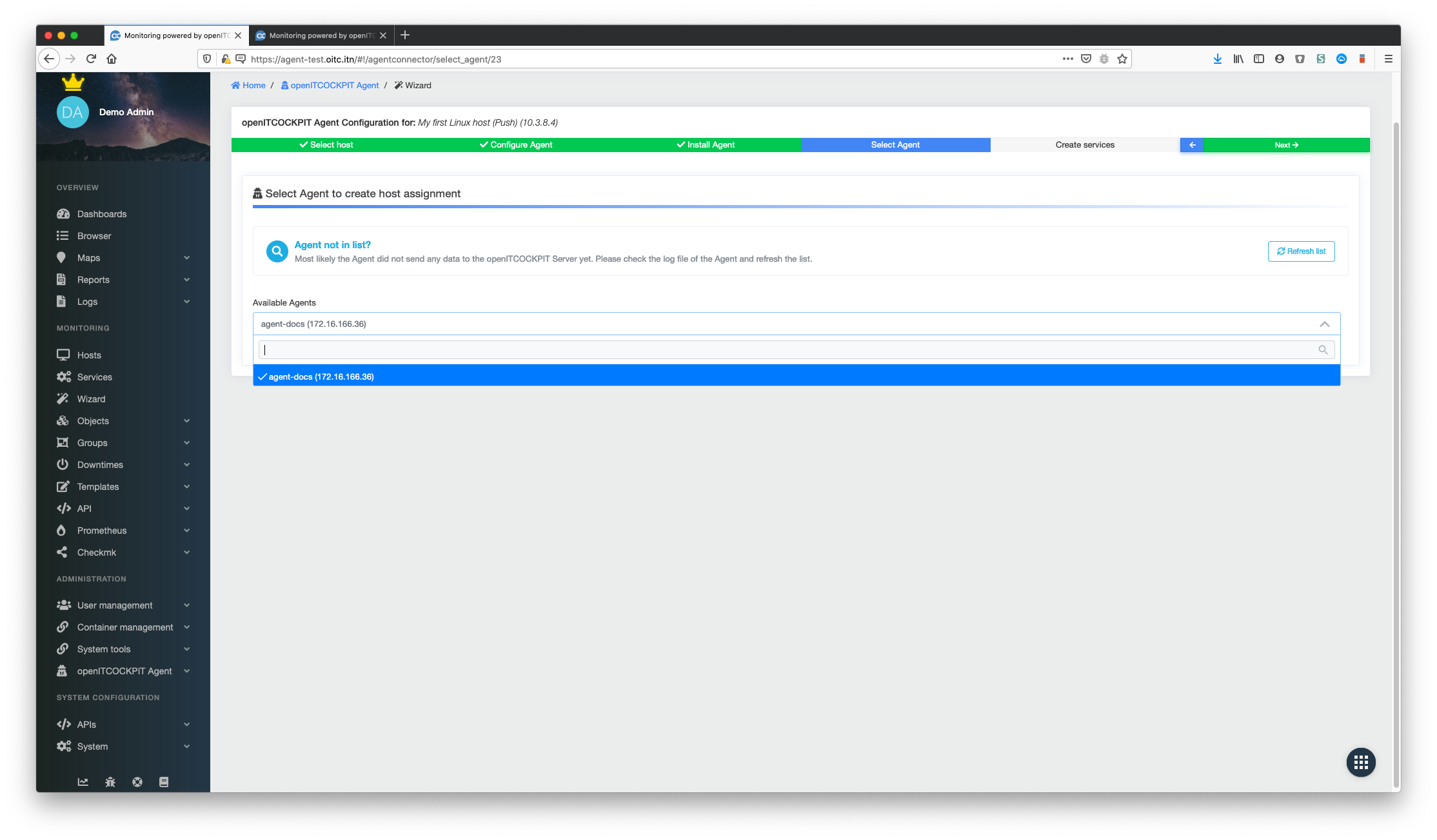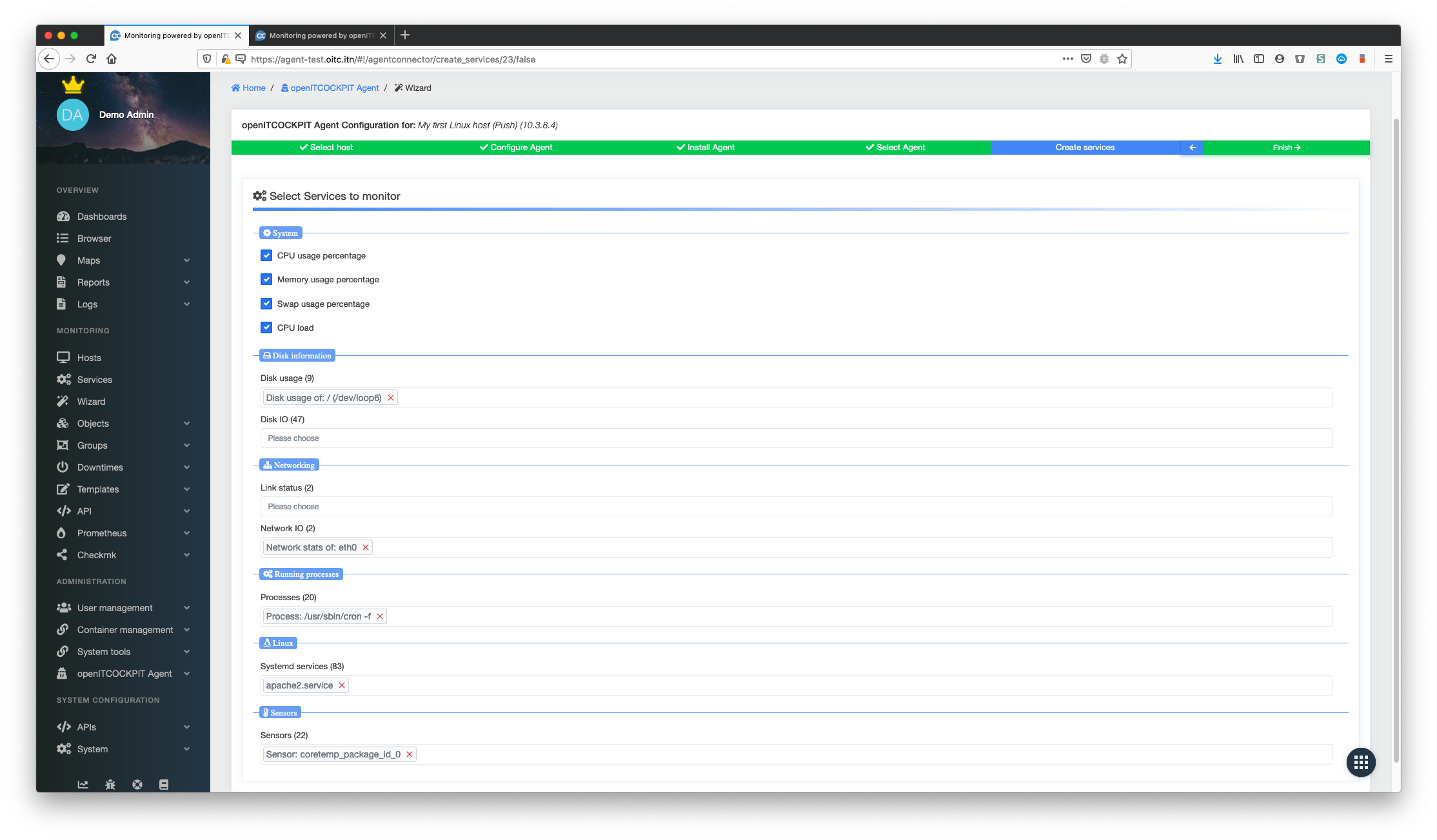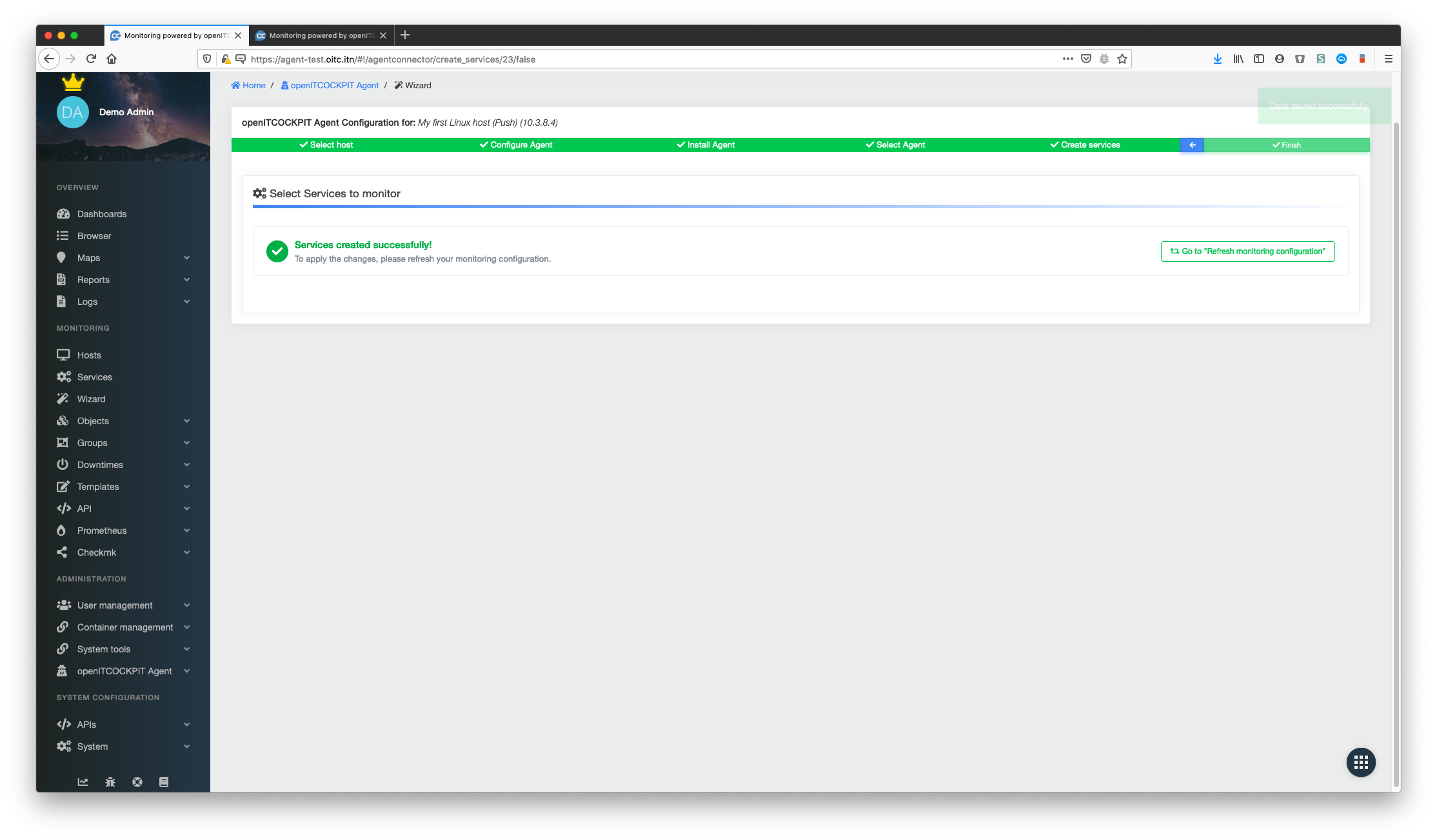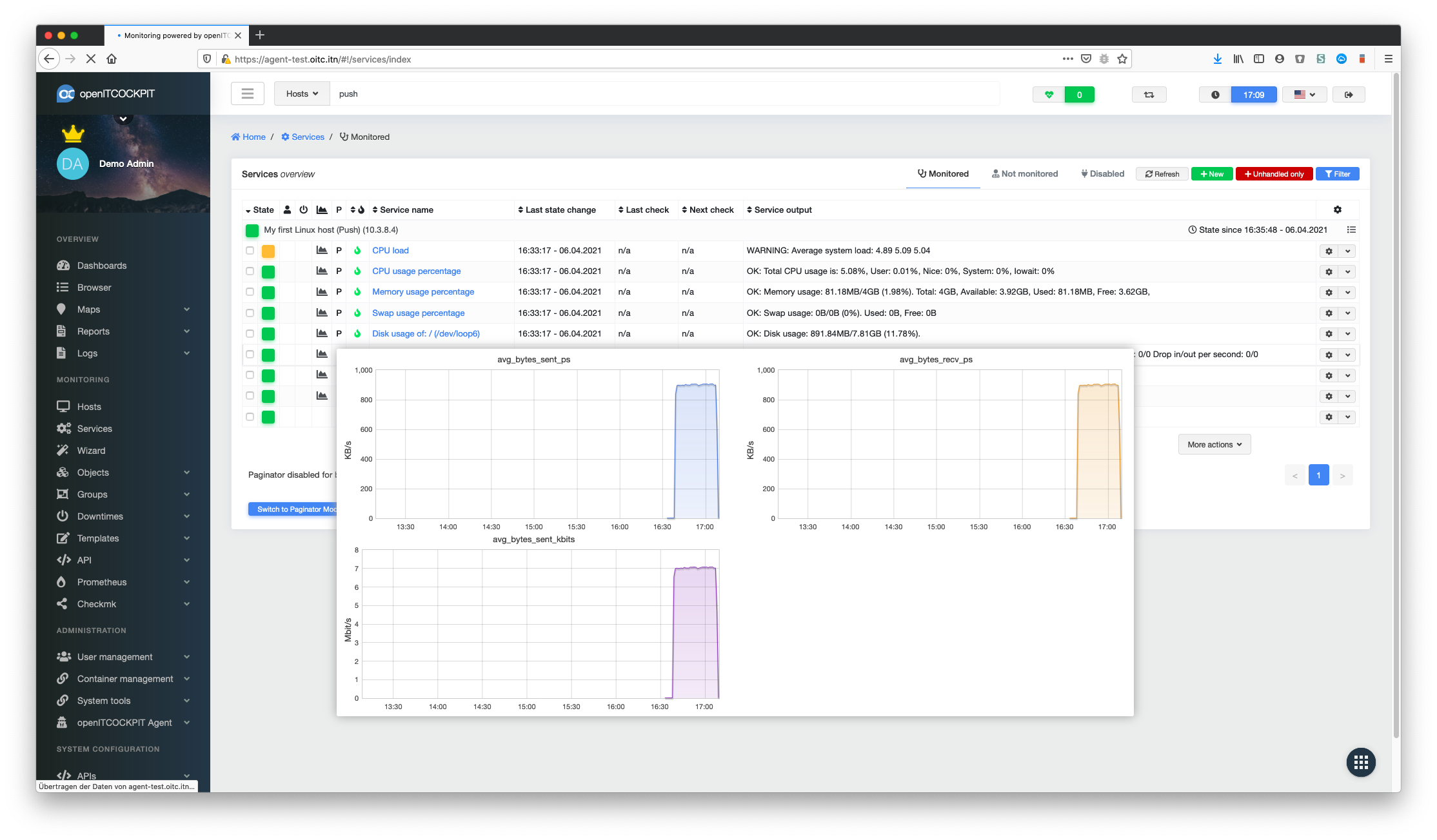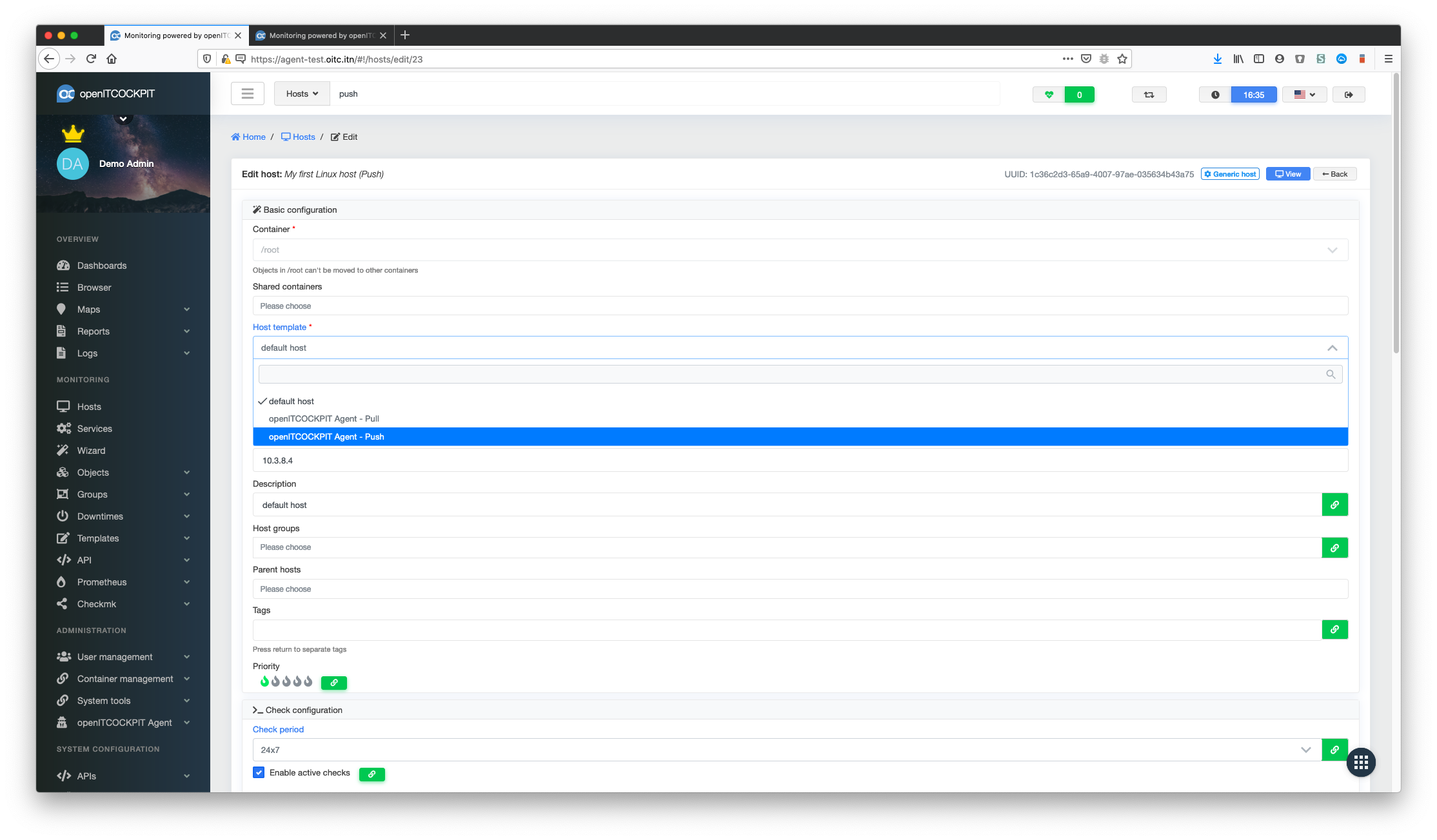Monitoring with the openITCOCKPIT agent¶
Monitoring a host's basic parameters should never be a difficult or tedious task. The openITCOCKPIT Monitoring Agent is available for Windows, Linux and macOS and is able to collect metrics such as CPU, memory, disk usage, network status, temperatures etc. right out-of-the-box.
The openITCOCKPIT Monitoring Agent is adaptable and expandable because it is 100% compatible with the Nagios plugin API. Therefore, no additional software like NRPE or check_by_ssh is needed to run plugins on the target system.
Communication is encrypted by HTTPS by default.
Downloading and installing the openITCOCKPIT Monitoring Agent¶
Before you start, install the openITCOCKPIT Monitoring Agent on the target system you want to monitor.
To download the agent, we recommend using the official download site.
The source code is available via the GitHub repository: https://github.com/openITCOCKPIT/openitcockpit-agent-go
Monitoring a host with the openITCOCKPIT Monitoring Agent¶
In the context menu of the hosts, select the option openITCOCKPIT Agent Discovery.
A wizard-based configuration process will guide you through all the steps.
The main differences between push and pull mode¶
Before you begin, you need to decide whether you want to monitor your host in push or pull mode.
- In Pull mode, the openITCOCKPIT server connects regularly via HTTPS on port
3333to the agent and fetches the verification results - In Push mode, the openITCOCKPIT monitoring agent connects regularly and "pushes" its monitoring results via HTTPS on port 443 to the openITCOCKPIT server. This is perfect if your target system is behind a NAT.
Pull mode¶
Both modes are easy to set up. For purposes of this tutorial we will use Pull mode. Click here for Push mode
The second step is basically a graphical configuration generator used for modifying the openITCOCKPIT Monitoring Agent configuration file. You just need to select the operating system you want to monitor and then click the "Next" button.
Info
"Connection Type: Auto-TLS" It is strongly recommended that you select Auto-TLS as the connection type. This will automatically secure and encrypt the connection between the openITCOCKPIT Server and the openITCOCKPIT Monitoring Agent. More information about the security of the openITCOCKPIT Monitoring Agent can be found in the documentation.
In the third step, you will be shown where you can download the openITCOCKPIT Monitoring Agent and store the configuration file.
For the purposes of this tutorial, you can continue using the default configuration. For our next step, click on the " Next" button.
The openITCOCKPIT Server will connect to the openITCOCKPIT Monitoring Agent on the target system and perform a TLS certificate exchange. A unique certificate is generated for each openITCOCKPIT Monitoring Agent. This certificate is required for encryption and authentication purposes.
Click "Next" to continue.
The system will collect basic health metrics like CPU, memory and swap by default. You can, of course, also select other processes and services that you want to monitor. Once you have selected the desired services, click on "Done" to complete the openITCOCKPIT Monitoring Agent setup.
The last step will remind you to update the monitoring configuration. Please click on Update monitoring configuration
Once this has been done, the system will begin monitoring the selected services a few seconds later. It will also generate graphs whenever this is possible.
Determining host status (optional)¶
By default, openITCOCKPIT will ping the target system to determine the host status. However, instead of a ping it is possible to use the results of the openITCOCKPIT Monitoring Agent to determine the host status. For more information, please see the documentation: https://github.com/openITCOCKPIT/openitcockpit-agent-go/wiki/Determining-the-host-status
Push mode¶
Select Push mode to continue.
The second step is basically a graphical configuration generator used for modifying the openITCOCKPIT Monitoring Agent configuration file. You just need to select the operating system you want to monitor and then click the "Next" button.
Enter the public IP address or FQDN of your openITCOCKPIT server in the openITCOCKPIT server address field and enter
the API key that the agent should use in the openITCOCKPIT API key field.
Click Next to continue.
Security Note!
It is strongly recommended to create a new user with very few privileges and use an API key for unprivileged users. No special authorisations via user roles are required to transfer check results.
In the third step, you will be shown where you can download the openITCOCKPIT Monitoring Agent and store the configuration file.
Copy the configuration file displayed to the specified path and restart the openITCOCKPIT Monitoring Agent service. The
commands and file paths will depend on the operating system used. Click Next to continue.
Each agent sends a unique identifier to the openITCOCKPIT server. To prevent unauthorised agents from submitting check
results, all agents running in Push mode must be manually assigned to a host. Click Next to continue.
The system will collect basic health metrics like CPU, memory and swap by default. You can, of course, also select other processes and services that you want to monitor. Once you have selected the desired services, click on "Done" to complete the openITCOCKPIT Monitoring Agent Setup.
Info
Because the agent runs in push mode, it is possible that openITCOCKPIT will not have received any data yet and
therefore will not display any services. If this is the case, click to return to the
previous step, wait 30 seconds, and then click the Next button again.
The last step will remind you to update the monitoring configuration. Please click on Update monitoring configuration
Once this has been done, the system will begin monitoring the selected services a few seconds later. It will also generate graphs whenever this is possible.
Determining host status (optional but recommended)¶
By default, openITCOCKPIT will ping the target system to determine the host status. However, in most cases it is not possible to ping the target system when using Push mode.
Because of this, please edit the host and select the host template openITCOCKPIT Agent - Push and save. Don't forget
to update (export) the monitoring engine configuration after you have completed this step.
openITCOCKPIT will now evaluate the timestamp for the last message received from the openITCOCKPIT Monitoring Agent and determine whether the host is available or not.
For more information, please see the documentation: https://github.com/openITCOCKPIT/openitcockpit-agent-go/wiki/Determining-the-host-status
